Ford, one of the leading car manufacturing brands in the world, is experimenting with a new way of making car parts from recycled and discarded olive tree waste. The company uses olive branches, twigs, and leaves that are usually burned or thrown away after the olive harvest to create more sustainable and eco-friendly vehicle components. Let’s explore more about this latest innovation from the global car manufacturing giant.
Turning Olive Tree Waste into Durable Car Parts
The engineers at Ford’s European headquarters in Cologne, Germany have used simulation technology to examine whether olive tree waste can be used to create robust and flexible car parts. The experiment proved fruitful being able to produce prototypes of footrests made of 40% fibers and 60% of recycled polypropylene plastic. The footrests have been successful in terms of their durability and strength.

The COMPOlive Project
The initiative is part of the COMPOlive project, which aims to bring about environmental change in olive production through recycling and support for the circular economy. The project is funded by the European Union and involves partners from Spain, Italy, Germany, and Greece. The project’s main goal is to develop new biocomposites from olive tree waste that can be used in various industries, such as automotive, construction, and packaging. Biocomposites are expected to have high mechanical properties, low environmental impact, and low production costs.
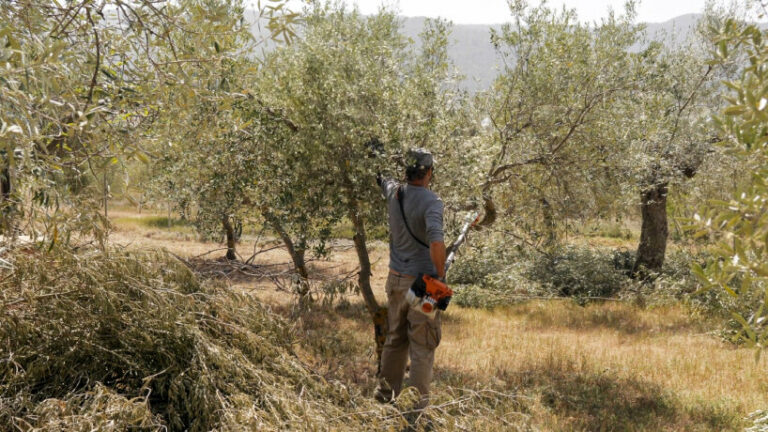
Ford is one of the industrial partners of the project and is focusing on using biocomposites to make car parts, such as footrests and parts of the boot area. The company hopes to reduce plastic usage in manufacturing and avoid burning refuse, which can cause air pollution and greenhouse gas emissions.
From Harvest to Automotive Innovation
The COMPOlive Trial Originating from olive groves in Andalusia, Spain, the world’s leading producer of olive oil, the discarded parts of olive trees became the focus of Ford’s sustainability trial. The COMPOlive project not only aims to reduce plastic usage but also seeks to prevent the traditional practice of burning waste during olive harvests. By sourcing materials locally and conducting rigorous testing, Ford is paving the way for potential mass production of car parts derived from olive tree waste, particularly for use in electric vehicles.

The Manufacturing Process
To make car parts from olive tree waste, Ford engineers at the company’s European headquarters in Cologne, Germany, used simulation technology to assess the usability of olive trees in terms of durability, strength, and moldability. Once confirmed, they proceeded with the prototypes of footrests, consisting of 40 percent fibers and 60 percent recycled polypropylene plastic.
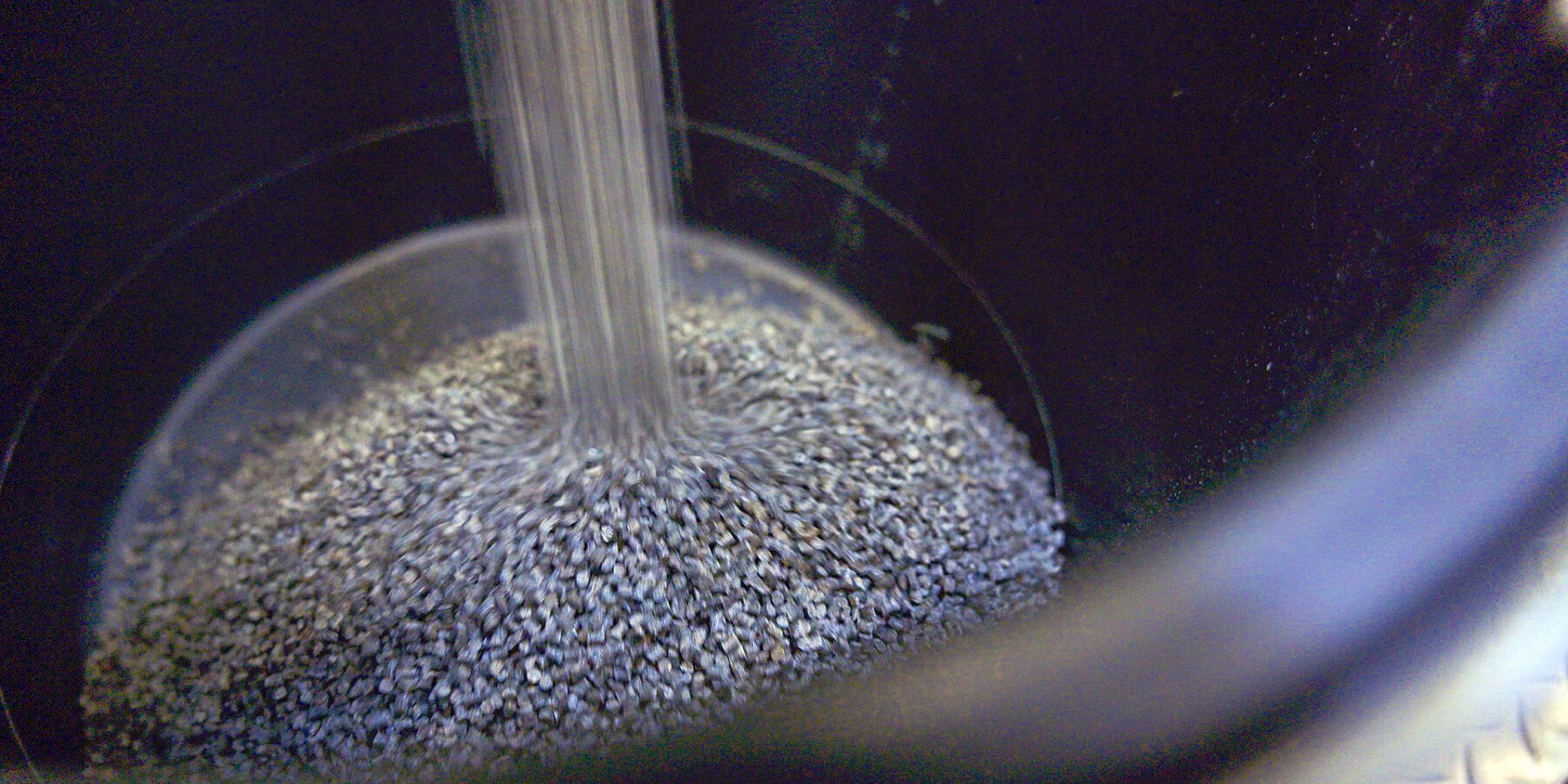
These prototypes were placed inside a machine that transformed them into a substance. The liquified form was heated, and using an injector, it was molded into the chosen shape of the car parts. Ford states that using olive tree waste to create car parts can help reduce the plastic used in such components and contribute to cleaner air in the local area by avoiding burning as a means of waste disposal.
The Benefits of Using Olive Tree Waste for Car Parts
Ford claims that using olive tree waste for car parts has several benefits, both for the environment and the customers. Some of the benefits are:
- Reducing waste and emissions: By using olive tree waste, Ford is preventing the burning of the waste, which can cause air pollution and greenhouse gas emissions. The company is also reducing the amount of plastic used in manufacturing, which can reduce the environmental impact of the production process.
- Improving sustainability and circularity: By using olive tree waste, Ford is supporting the circular economy, which aims to minimize waste and make the most of resources. The company is also improving its sustainability, which is one of its core values and goals.
- Enhancing aesthetics and performance: By using olive tree waste, Ford is creating car parts that have a unique surface appearance and texture, which can appeal to the customers. The company also says that the car parts made from olive tree waste are robust and durable, which can improve the performance and safety of the vehicles.
The Future of Car Parts Made from Olive Tree Waste
Ford says that it is currently exploring the mass production of car parts made from discarded olive tree waste for use in electric vehicles. The company believes that using olive tree waste for car parts can help it achieve its vision of creating smart vehicles for a smart world.
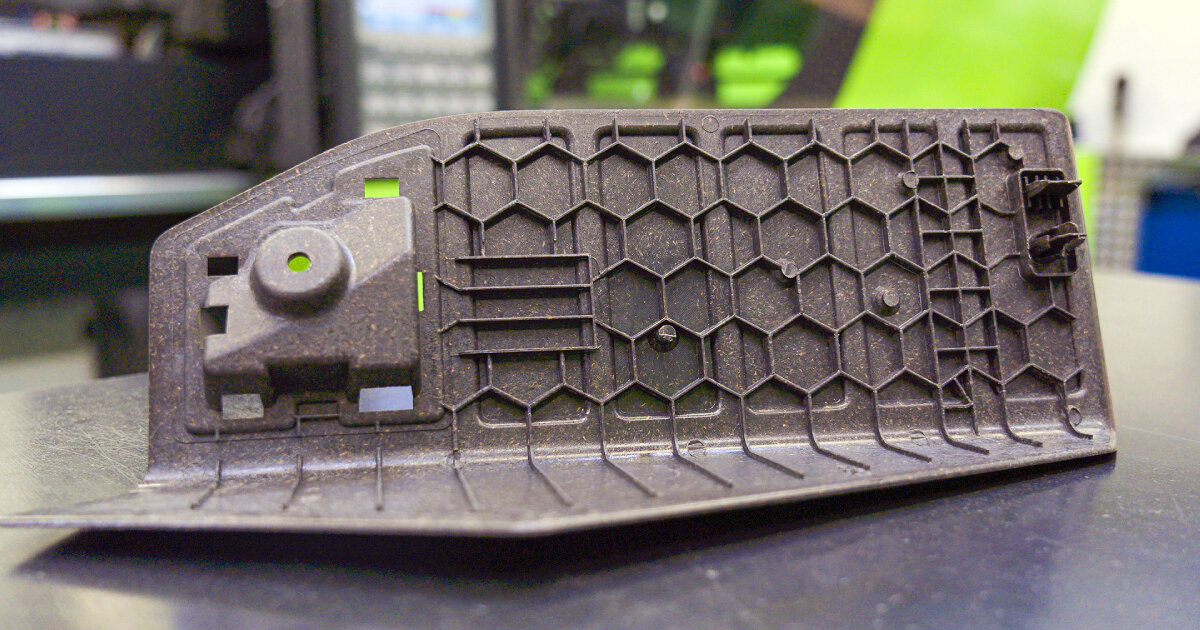
Ford is not the only car manufacturer that is experimenting with using natural materials for car parts. Other examples include BMW, which is using hemp fibers for door panels, and Toyota, which is using sugarcane for seat cushions.
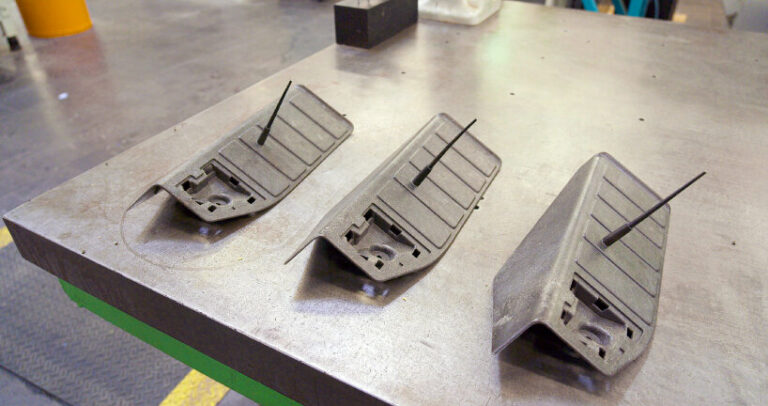
The use of natural materials for car parts is expected to grow in the future, as more consumers demand more sustainable and eco-friendly products. The use of natural materials can also help car manufacturers reduce their costs and improve their competitiveness in the market.
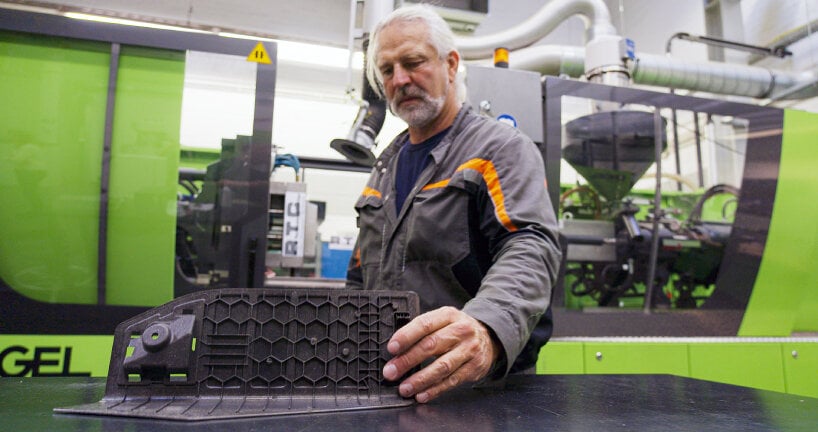
Final Thoughts
Ford isn’t just tinkering with recycled olive tree parts – it’s planting a flag in the fertile ground of sustainable innovation. As the automotive landscape shifts towards greener horizons, Ford’s groundbreaking initiative is redefining its brand DNA. By slashing plastic use, curbing waste incineration, and venturing into uncharted material territory, Ford is steering its brand towards a future where eco-conscious vehicles are the norm, not the exception. Once cast aside, olive tree waste is now being woven into the very fabric of Ford’s mission: building a cleaner, greener future for the industry, one recycled twig at a time.
*All images are a courtesy of www.designboom.com
Also Read: Playful Sophistication: Sustainability Meets Style in Talou’s Kid-Friendly Branding



